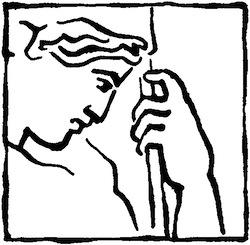Stel een vraag
Met het formulier hier onder kunt u contact op nemen met boekwinkel Scrinium.
RICKMAN, G., - The Corn Supply of Ancient Rome.
De vraag gaat over de volgende titel:
| Schrijver: | RICKMAN, G., |
|---|---|
| Titel: | The Corn Supply of Ancient Rome. |
| ISBN: | 9780198148388 |
| Uitgever: | Clarendon Press, Oxford, 1996 |
| Bijzonderheid: | XIII,290p. Hard bound with dust wrps. (Sandpiper edition). Nice copy. |
| Prijs: |
€ 50,00
€ 4,50
|
| Meer info | ?The student of ancient history has much to be gratify for, but notoriously there are wide areas on his maps which have to be left blank or filled in only in sketchy outline. Economic and administrative details far too often elude his eye. (?) The difficulties and expense of overland transport and the falling away of local sources of cereals for the growing capital of a world empire forced Roman eyes to turn to Sicily and Sardinia, Spain, Africa, and Egypt to uncover major and reliable sources of supply. Which all sounds straightforward enough, until we remember the enormity of the task involved: the sheer cost of it all, the checking of quantities and qualities of cargoes on embarkation and disembarkation, the trickiness of carrying and storing a very heavy and unstable bulk commodity vulnerable to pests and rot and double-germination, and only too commonly until Augustus created a standing Roman navy the ravages of pirates who not long before Pompeu?s command of 67 B.C. could even sail coolly into the mouth of the Tiber, sink a consular fleet, and plunder Ostia itself. (?) The harsh truth wat that if Rome could not keep the seas and secure the grain-supplies, the city would die. (?) The arrangement of the material is clear and orderly: after an excellent exposition of ?The Governing Factors? the historical account moves through Republic, Transition (Pompey, Caesar, and augustus), to Early Empire. The author then turns his attention to the corn lands themselves, to transport and storage and prices, and to the actual distributions of corn in the city, before a final chapter on the Late Empire, when the emergence of Constantinople as the imperial capital displaced Rome from the centre of the stage. Eleven appendices bring up the rear with their detailed discussion of special topics. The manner, as well as the matter, is first class. (?). The book is essential reading for all Roman historians, teachers and taught alike. (?) a first-rate book on a subject of central importance and great intrinsic interest.? (DAVID STOCKTON in The Classical Review (New Series), 1981, pp.91-93). |
| Boek bekijken | |

De verkoper zal binnen 3 werkdagen contact met u opnemen om de koop verder af te handelen.
